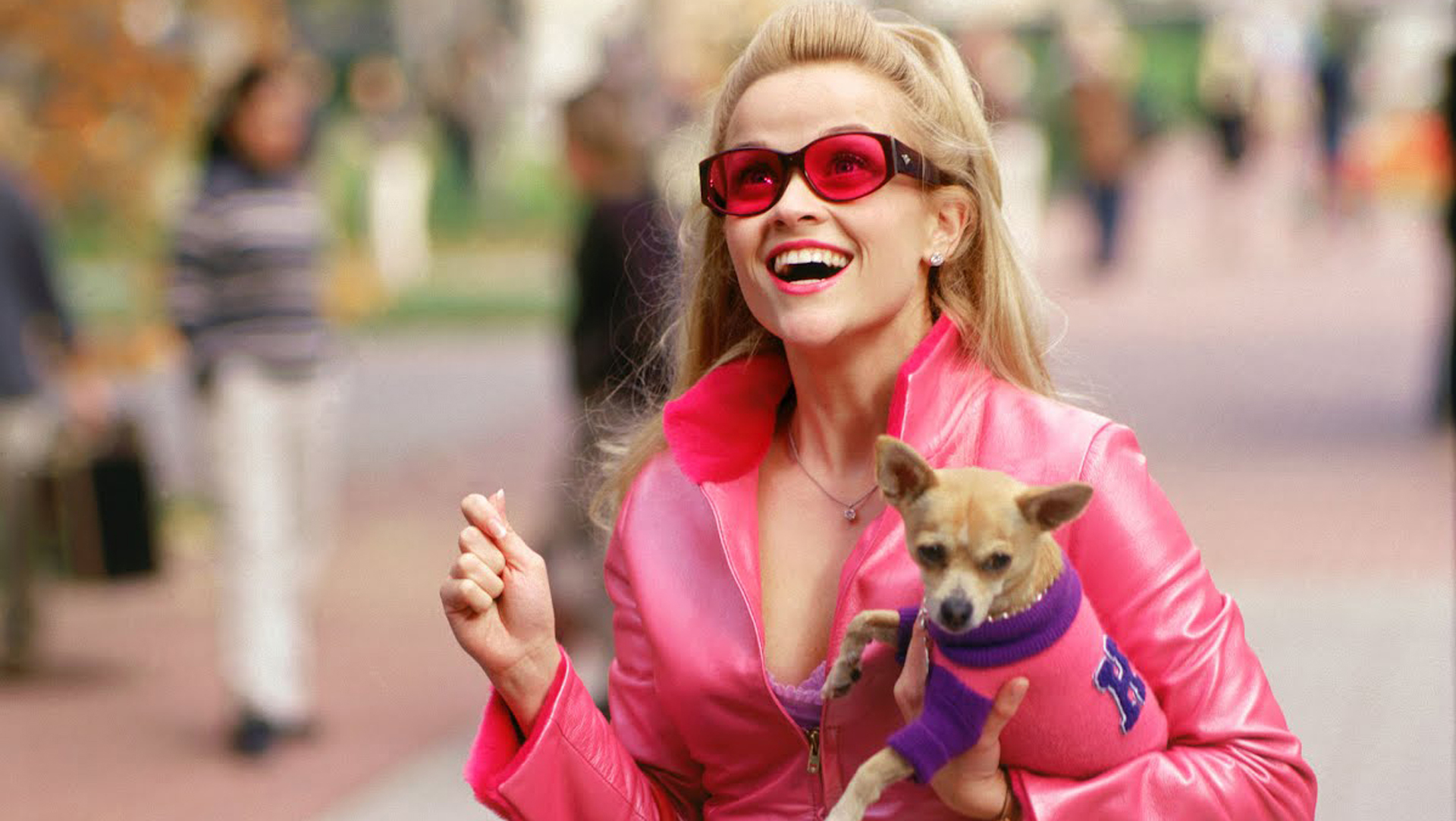This year the movie “Legally Blonde” turns 16. The film, starring the lovely Reese Witherspoon, is about a (you guessed it) blonde fashionista named Elle Woods who gets dumped by her boyfriend, Warner Huntington III. Warner broke up with Elle because he was an upcoming politician who needed to “marry a Jackie, not a Marilyn.”
So, to win him back, Elle enrolls in Harvard Law School…just let that sink in. As you can imagine, a plot this absurd has plenty of holes, including the fact that she may have been happier in the fashion industry, Elle using her looks to get into law school then later being upset about being objectified, the film’s deus ex machina ending and the movie’s questionably written murder case.
Elle Woods is clearly into fashion, given her bachelor’s in fashion marketing and all of her fabulous outfits seen throughout the movie. Her degree and personality make you wonder if Elle should have ever enrolled in law school, Harvard Law, no less.
Throughout the movie, Elle’s love of all things fashion shows when she flees to a nail salon for comfort, through her urge to instantly go shopping after landing an internship with Professor Callahan, when she shows up to court in a hot pink outfit and when she wins her case because of her knowledge of hair products.
The movie may be saying that blondes can be smart, but investing all the time, money and energy it takes to get into law school just to win back an ex is anything but a smart move. To make Elle’s situation worse, on her first day of classes she finds out that Warner is engaged to a woman named Vivian Kensington. Vivian is catty and rude, and clearly doesn’t like Elle; she helps get Elle kicked out of a lecture and doesn’t let her join the class study group.
Despite Warner’s engagement, Elle still tries to win him back, which just makes Elle look dumb, because if someone is engaged, it should be clear that you lost and the fiancé won. That should have been her cue to move on to some guy who wouldn’t dump her because of her interest in fashion or blondeness.
Although Elle’s 4.0 GPA and long list of extracurriculars helped her get into Harvard, so did her looks. The opening shot of her video admissions essay shows her in a pink, sequin bikini. The second part takes place in a pool, where Elle is wearing yet another shiny two-piece, and the ending scene features her in a swimsuit yet again.
Later on in the movie, Elle meets in private with Professor Callahan and finds out that he only gave her an internship because he liked her appearance, which upsets her and almost causes her to quit. I’m not in any way saying that Callahan’s behavior is acceptable, such actions should cost him his job, but what I am saying is that Elle nearly giving up her career because of a shallow professor is unexpected given the nature of her admissions video.
This film also contains a deus ex machina ending, which a big no-no in storytelling. The surprise happens when Elle announces that she’s quitting law school. Before leaving Harvard, Elle takes the time to say goodbye to her friend, Paulette Bonafonte, whom she met at the beauty salon. While Elle is bidding her friend farewell, Professor Stromwell, the woman who kicked Elle out of class on her first day, just happens to also be in the salon and overhearing their conversation. In response, Stromwell says, “If you’re going to let one stupid prick ruin your life, you’re not the girl I thought you were.”
These words finally make Elle reconsider her choice, which is understandable because Professor Stromwell wasn’t the only person that made an effort to talk Elle out of dropping out, and she’d be throwing away a lot by quitting. But, what isn’t believable is how Stromwell just happened to be at the salon and that nothing foreshadowed it. The camera just randomly shifts to her without warning.
“Legally Blonde”‘s murder case also raises a lot of questions, some of which are covered in this CollegeHumor article, along with many other topics. One question the article raises is why Brooke Windham refused to use her liposuction alibi.
Brooke’s reason for withholding the truth was that telling her fans that she got her body through surgery and not through her exercise program would cost her the reputation that she had worked so hard to build up. But, I think that we all can agree that liposuctions are nowhere near as bad as murder. What makes the situation even more logically unsound is that Elle keeps the alibi a secret when it could have easily saved Brooke from prison and won the case.
Something else CollegeHumor pointed out was that Mr. Windham’s daughter, Chutney, claimed she could not hear the gunshot because she was in the shower, which is also unlikely. Anyone can hear a gunshot from miles away, and if you were in the house where the gun was fired, running water would not stop you from hearing it. Yet, somehow her curls gave her guilt away instead of her blatant lie.
So, with the exaggerations, the inconsistency of Elle’s intelligence, the deus ex machina ending and lack of believability in the trial, can you still say that “Legally Blonde” is a good movie? Well, that depends; if you just want a funny chick flick to watch with your squad, then “Legally Blonde” is perfect for you.
The film’s primary goal is to make you laugh, and in general entertain you, not to display excellent storytelling. Plus, this article is just a result of me taking a movie I first watched in fourth grade too seriously. Overall, “Legally Blonde” is worth watching and just like any other movie, it has its flaws, but, don’t even get me started on the sequel.

















